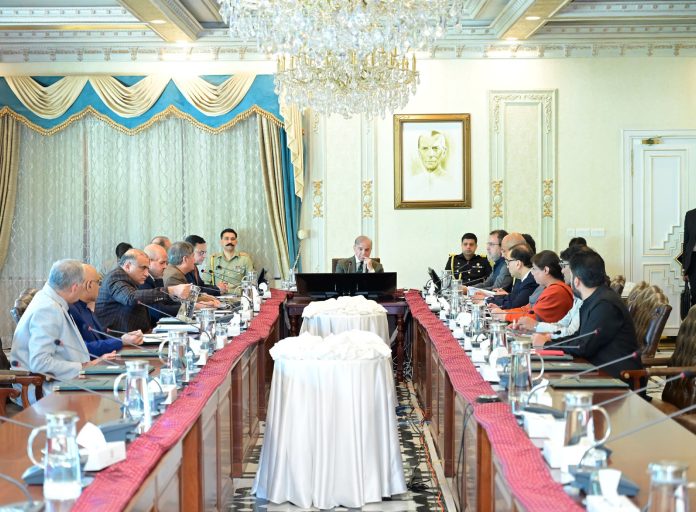
——- Stresses prioritising low-cost power projects
——- Seeks shifting of power generation capacity to solar energy
——- Calls for immediate closure of inefficient power plants
——- Directs action against officials deliberately obstructing reforms
By Asghar Ali Mubarak
ISLAMABAD: As the incumbent government making efforts to tackle multi-prong challenges in the power sector, Prime Minister Shehbaz Sharif on Friday directed the authorities concerned to reduce power tariffs further and expedite the implementation process of the action plan for future power generation projects.
The premier issued the directives while chairing a meeting to evaluate and discuss the country’s future electricity and power plans. The meeting was attended by federal ministers Ahad Khan Cheema, Awais Leghari, Dr Musadik Malik, Minister of State Ali Pervaiz Malik and other officials.
During the meeting, he was informed about the progress of the ongoing hydropower projects across the country. Stressing the need to prioritise low-cost power projects based on local resources, PM Shehbaz said such projects produce environment-friendly and affordable electricity.
He further directed that the current electricity generation capacity should also be shifted to solar en-ergy.
Globally, electricity is being produced from environmentally friendly, low-cost solar energy, he noted, adding that Pakistan was fortunate in this regard as the country had vast potential for solar energy.
The premier was also briefed on the progress of phasing out inefficient power plants that consume more fuel but produce less electricity.
He ordered the immediate closure of such outdated power plants adding that closing these plants would not only save valuable foreign exchange, but also reduce electricity costs for consumers. The PM also instructed that immediate action be taken against all officials deliberately obstructing reforms in the power sector. He also directed that reforms in the electricity transmission system be ex-pedited.
The power transmission system should be upgraded according to international standards, the prime minister further directed.
He further directed swift implementation of a system based on modern technology for the selection and transmission of low-cost electricity.
The prime minister issued instructions to complete all measures for the reform of the power sector within the specified timeline.
The meeting came days after the federal cabinet approved “settlement agreements” with eight inde-pendent power producers (IPPs) running on bagasse — a move that the government says would ben-efit the national exchequer by Rs238 billion.
These bagasse-based power plants included DW Unit I, Unit II, RYK Mills, Chiniot Power, Hamza Sugar, Al-Moez Industries, Thal Industries and Chinar Industries.
Two months earlier, the premier announced the pre-mature termination of power purchase agree-ments (PPAs) with the five oldest IPPs, with annual savings of Rs60 billion or around Rs411bn over the remaining term of their contracts.
The federal government was under immense pressure to reconsider its PPAs with the power plants following outcry across the country as the addition of capacity payment charges inflated the power bills beyond the affordability of the inflation-burdened masses.



